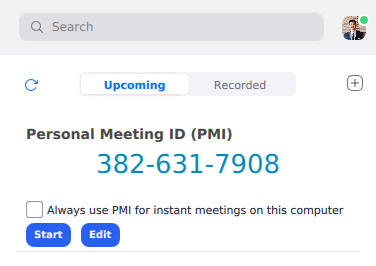
With the novel 'COVID-19' coronavirus, people are urged to stay at home and practice social distancing.
Among the many reasons, this is why Zoom becomes one of the most popular ways for people in many businesses, schools, and social groups to communicate on a large scale. Unfortunately, that creates moments in which random people start joining meeting rooms, causing disruption.
This is called 'Zoombombing'.
Those unwanted Zoom users were capable of joining random meeting rooms, and "hijack" them by broadcasting pornographic images or shout profanities before leaving the call.
In order to address this issue, Zoom the company has released details about its future update, which is meant to bolster the security of those using its video-chatting app.
What Zoom wants to do, is to allow Zoom account owners and administrators to disable the Zoom's Personal Meeting Identifier.
Also called 'PMI', it's a part of an online Zoom call’s URL, which can be used for scheduling and starting meetings. Previously, anyone could join a meeting using that identifier, if the calls were not properly secured.
If a Zoom account owner or administrator chooses to disable the PMI of their meeting room, their existing links will become invalid, and others willing to join the meeting room will get a message stating that "PMI is disabled".
What this means, nefarious individuals shouldn't be able to intrude a metting should they come across a meeting link.
However, Zoom said that users can still start instant meetings using a randomly generated ID/link.
According to the company on its blog post:

Previously, Zoom has made major changes to deal with criticisms of its privacy and security features.
And this option to disable PMIs is just another way Zoom is trying to address its growing issues.
The update is meant to be rolled out to Basic, or free, Zoom accounts, starting on May 9.
Besides that, Zoom is also making passwords necessary for all meetings, making Waiting Rooms (whereby the host controls when someone enters a meeting) turned on by default, and making the screen-sharing option only accessible by the host by default to stop people broadcasting distracting images.
But still, Zoom has more to be addressed.
For example, while it claims that its chats are encrypted, security researchers found that it was not the case, as they realize that conversations could be intercepted as they were sent.
It may be too late for Zoom to regain trust from teachers, business professionals and some others who had dealt with trolls and pranksters interrupting their calls. With the many options out there, like the products from Facebook, Google, and Microsoft, some may never want to give Zoom a second chance.
But still, Zoom is improving, despite taking one step at a time.
Related: With Version 5.0, Zoom Wants To Stop 'Zoombombing' And Improves Security